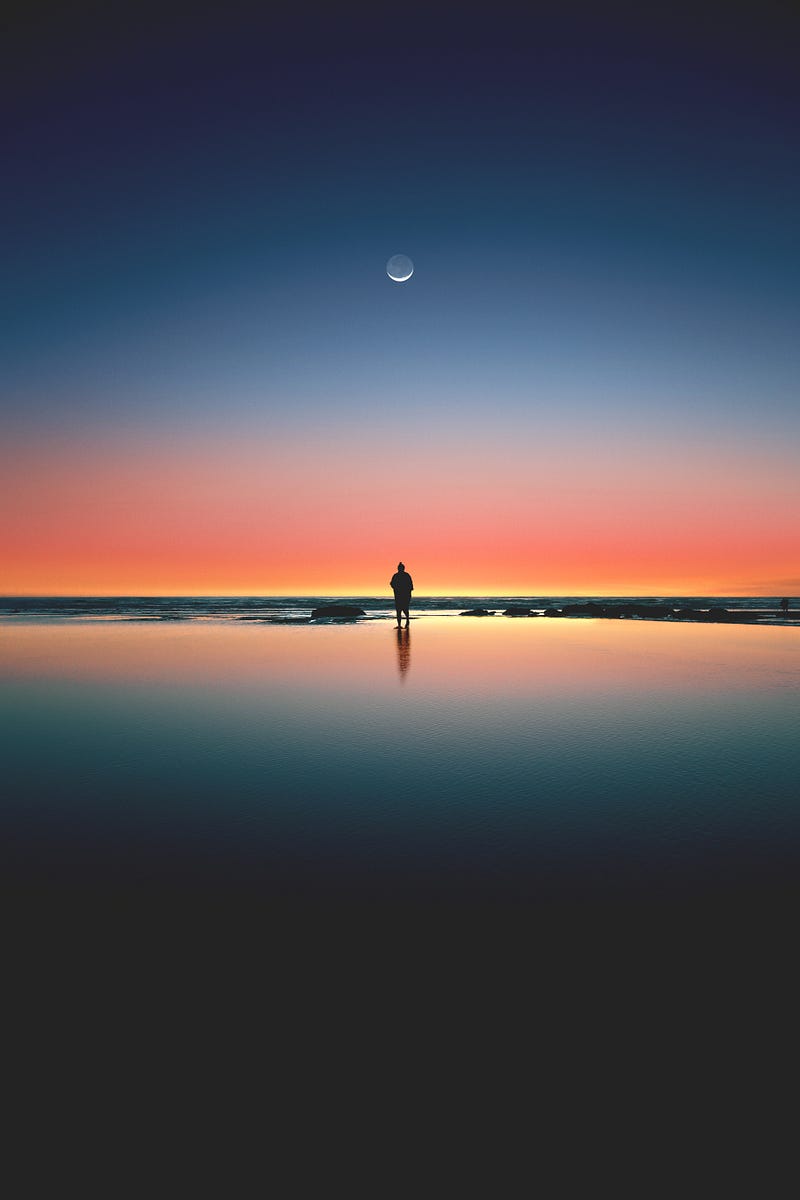The Power Of Solitude

Solitude, to be clear, is not a synonym for loneliness. Psychology Today contrasts the two: “Loneliness is marked by a sense of isolation. Solitude, on the other hand, is a state of being alone without being lonely and can lead to self-awareness.” Solitude is such an essential part of my existence that I can’t imagine trying to manage it effectively without regular rounds of it.
I would suggest that solitude is essential for anyone who’s working to make a great life for themselves. If you’re not used to spending time alone, solitude can be uncomfortable, awkward, and even scary. But if we won’t sit quietly and supportively with ourselves, it’s hard (if not impossible) to do the same for others in our lives. As author André Gide said, “The fear of finding oneself alone — that is what they suffer from — and so they don’t find themselves at all.” If we let the anxiety keep us from carving out meaningful time for ourselves, we will, over time, pay the price — we may “get a lot done” but our effectiveness will steadily erode.
Ultimately, it’s about being at peace with ourselves. If you doubt me, but you’re up for a bit of self-parody, you can always fall back on Jean-Paul Sartre’s tongue-in-cheek statement: “If you’re lonely when you’re alone, you’re in bad company.”
Solitude, once we settle into it, is a wonderful thing. It creates spiritual sustenance. It gives us much-needed time to reflect. It’s our opportunity for long-ignored thoughts and feelings to emerge. It’s a chance to quietly acknowledge fears that linger below the surface, unacknowledged, that weaken our emotional foundations. Reflective, thoughtful time on our own can surface hopes and dreams of a better future, support intuition, and encourage us to expand our emotional horizons.
Some regular slice of solitude is, I would suggest, as important as regular exercise. Fyodor Dostoevsky — whose books I happily read while studying Russian history all those years ago at the University of Michigan — said it well: “Solitude for the mind is as essential as food is for the body. In solitude we can forge our character away from the often-constricted external demands of others and maintain our independence in the relationships we cultivate thus ensuring we do not, like many today, lose our identity in them.”
Solitude works, I’ve come to believe, a bit like the equalization of pressure in an enclosed area. When we’re surrounded by action and anxiety all the time, our internal distractions and stresses have nowhere to go. Trapped, with no escape route, they fill our heads, getting louder and louder with each passing day. We can distract ourselves for a while, but eventually, our heads will, at least figuratively, explode. Stress levels soar. Intentionally or not, we take out our anxiety on others.
At an extreme, we freak out. Drama builds and crises abound. By contrast, when we quiet our external environment by spending meaningful time alone, the pressure around us begins to go down.
It makes room for our stress, uncertainty, and struggle to slowly seep out of us and into the newly “emptied” space around us. Matthew Bowker, a psychoanalytic political theorist, writes that “It might take a little bit of work before [solitude] turns into a pleasant experience. But once it does it becomes maybe the most important relationship anybody ever has, the relationship you have with yourself.”
Is it awkward to spend time alone? The answer will be different for each of us. For some folks, solitude can be scary. For others — the introverts like me — it might be a bit easier. For me, the shy introvert that I am, solitude is safety. Uncomfortable or not, sitting through the initial struggles that emerge from frequent sessions of solitude, is one of the best ways there is to get to know ourselves at a deeper and more meaningful level.
It’s being alone — with a supportive and creative community still present in the world — that lets us tap into the deeper feelings that get buried in our day-to-day hustle and bustle. Whether we acknowledge it or not, our pain pursues us throughout our whole life. Denial, ultimately, only makes it worse. I stand by the Cameroonian proverb: “No matter how fast a man is, he cannot outrun his shadow.”
Add in a fair bit of writing and reading. Even a few minutes sitting alone in the car or a ten-minute walk in the woods can have a powerfully positive impact. Yoga, rowing, biking, writing, knitting, kayaking, painting, photography, reading philosophy, going fishing, writing poetry, and drawing there are dozens of wonderful ways to make it work. I grew up in the urban setting of Chicago and, strange as it probably sounds, I feel calm and centered sitting alone on the asphalt in the corner of a quiet parking lot. However you do it, regular practice does work.
Just as we won’t get in shape by working out once a year, it’s the same with solitude.
“Without great solitude, no serious work is possible.” Effective leaders, I would suggest, sit in solitude regularly. If I don’t get time alone, I start to lose my mental balance. My energy gets off, which negatively impacts clients, quality, coworkers, and anyone I interact with. I’m more likely to get into arguments or get defensive. If we can’t take care of ourselves, we won’t successfully lead anyone else.
And if our state of being as leaders is later reflected in our organizations, then it’s pretty much a lock that — for better and/or for worse — that dinner state is going to be manifested in the way our organizational culture comes together too.

Comments
Post a Comment